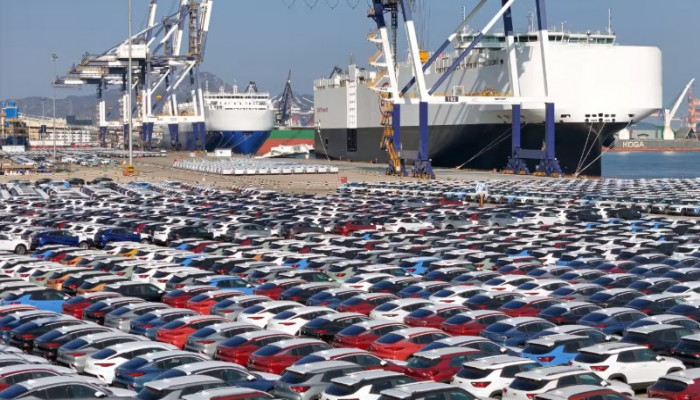China's exports experience decline in 2023, marking first drop in seven years
- In Reports
- 02:20 PM, Jan 12, 2024
- Myind Staff
The data reveals that China witnessed a decline in exports last year, marking the first such decrease in seven years. This dip is attributed to tensions with the United States and challenges in the global economic recovery, adding to Beijing's efforts to stimulate domestic growth.
Traditionally, overseas shipments have played a crucial role in propelling GDP expansion over the last four decades. However, recent figures underscore a concerning trend, as a separate report indicates that the country is at risk of entering a deflationary spiral, posing a potential complication to officials' efforts to stimulate economic activity.
The data also underscores a geopolitical shift, as annual trade with the United States sees its first decline in four years. Meanwhile, despite international pressure to isolate Moscow over its involvement in the war in Ukraine, commerce with Russia has reached a record high.
Vice Minister of the General Administration of Customs Wang Lingjun stated, "The complexity, severity, and uncertainty of the external environment are on the rise, and we need to overcome the difficulties and make more efforts to further promote the growth of foreign trade."
Exports increased in November for the first time since April. In December, there was also a 2.3 percent year-on-year increase, but it's important to note that this is compared to the low base of 2022 when the impact of zero-Covid policies was most significant. Looking at the bigger picture, exports declined by 4.6 percent in 2023, marking the first annual decrease since 2016.
The report indicates a 5.5 percent drop in imports for the past year. The reduced demand for goods from overseas is evident in the Consumer Price Index (CPI), which fell by 0.3 percent last month. This marks the third consecutive monthly decline, the longest streak since October 2009, as reported by Bloomberg News.
According to figures from the National Bureau of Statistics (NBS), inflation averaged 0.2 percent for the entire year. China encountered deflation in July for the first time since 2021. Despite a brief rebound the following month, prices have been consistently declining since September.
Goldman Sachs analysts noted in a statement that the persistent low core Consumer Price Index (CPI) inflation is likely a result of subdued domestic demand, influenced by the ongoing property downturn and a strained labor market.
Beijing has revealed specific stimulus measures designed to support key sectors, with a particular focus on addressing challenges within the troubled property industry. Zhiwei Zhang, a representative from Pinpoint Asset Management, conveyed in a note that fiscal and monetary policies began shifting in a positive direction in the fourth quarter of 2023.
However, Zhang noted that it takes time for these policies to have an impact on the economy. Furthermore, there is uncertainty about whether these policies possess sufficient strength to counteract the deflationary pressures within the economy.
While deflation may mean lower prices for goods, it poses risks as consumers delay purchases, leading to reduced demand. This can force companies to cut production, freeze hiring, and offer discounts on existing stocks, affecting profitability. The National Bureau of Statistics reported a 2.7 percent decline in producer prices for the 15th consecutive month. The Producer Price Index, reflecting factory goods' costs, dropped three percent in November.
Image source: India Today







Comments